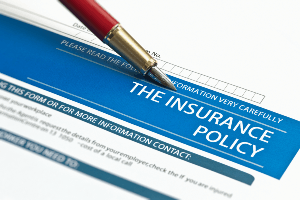BLOG
Suing Insurance Company for Bad Faith in NJ
 In January 2022, New Jersey’s governor signed a bill into law that would create a private cause of action for drivers whose Uninsured/Underinsured Motorist (UM/UIM) coverage claims were denied or delayed without good reason. These drivers could sue their insurance company for bad faith practices.
In January 2022, New Jersey’s governor signed a bill into law that would create a private cause of action for drivers whose Uninsured/Underinsured Motorist (UM/UIM) coverage claims were denied or delayed without good reason. These drivers could sue their insurance company for bad faith practices.
If you or a loved one were injured in an accident with a driver who did not have insurance to cover the costs of your damages, and your claim with your own insurance company was denied, you may be able to pursue compensation from your insurance company if you have a UM policy. If they act in bad faith, you may now be able to file a claim to try to hold them accountable.
Our New Jersey auto accident lawyers are prepared to review your claim to see how we may be able to help you. The initial consultation is free of charge.
UNDERSTANDING THE NEW BAD FAITH INSURANCE CLAIMS LAW IN NEW JERSEY
The New Jersey Insurance Fair Conduct Act (IFCA) took immediate effect on January 18, 2022. The Act provides a statutory cause of action for insured drivers who bring forth a claim for bad faith insurance practices against their own insurance company for unreasonable delays or denials for payment of UM claims.
This means that policyholders who want to sue their own insurance companies for bad faith practices on UM claims can do so by pointing to a specific violation of state law instead of relying on common law and legal precedent.
In addition to providing cause of action, policyholders may also be eligible for greater compensation for bad faith claims if their lawsuit is successful.
WHAT IS UNINSURED/UNDERINSURED MOTORIST (UM) COVERAGE?
In New Jersey, drivers who select a standard insurance policy are legally required to carry UM coverage that matches the liability limits on their policy.
Having a UM policy helps injury victims recover compensation for their economic damages, like medical bills and lost wages, when the liable party does not have any or enough insurance to cover those costs.
Generally, injury victims who are eligible to file a first-party UM claim must have:
- Been injured by the negligence of a person not on their own insurance policy
- Not have liability insurance or enough liability insurance to cover the injured party’s damages
HOW DOES UM COVERAGE DIFFER FROM PERSONAL INJURY PROTECTION (PIP) INSURANCE?
New Jersey is different than most states due to its no-fault insurance laws that require drivers to carry PIP insurance, also known as no-fault insurance.
PIP covers medical costs and some other economic damages for the insured driver, no matter who caused the crash. Policy limits for PIP start out as low as $10,000 and could go as high as $250,000 or more, depending on the options selected by the insured driver.
The insurance company can try to argue that it should not have to pay a UM claim if a driver has PIP. However, if the liable party caused you significant damages that exceed the limits of your own no-fault insurance and that party does not have bodily injury liability insurance, you may be able to file a first-party claim through your UM coverage.
Both PIP and UM only provide compensation for economic damages, not for non-economic damages, like pain and suffering.
Your UM coverage will only kick in once your PIP is exhausted and the liable party’s liability insurance is either exhausted or non-existent.
WHAT IS CONSIDERED AN UNREASONABLE DELAY OR DENIAL OF UM COVERAGE?
As an insurance policyholder in New Jersey, you have certain rights when it comes to how your claim is handled by the insurance company.
For one, insurance companies have 10 business days to respond to any claims. If the company decides your claim is not a valid one, they must provide an adequate explanation of why your claim was denied within 30 calendar days of when you initially filed the claim.
Before denying a claim, however, the insurance company is also legally required to conduct a fair and thorough investigation to determine its validity.
The insurance company cannot deny your claim without adequate cause. Some other examples of bad faith practices include:
- Ignoring emails, calls, texts or letters
- Intimidating a policyholder with rude or threatening communications
- Overcomplicating the process of filing a claim
- Covering up evidence that could increase the value of your claim
While the insurance company is not legally obligated to negotiate a settlement with policyholders, they are required to offer appropriate compensation for your damages. Insurers may be accused of bad faith practices if they make a settlement offer that is well below the actual value of a claim.
WHAT STEPS CAN I TAKE BEFORE FILING A BAD FAITH INSURANCE LAWSUIT?
There are some steps you may need to take before filing a bad faith insurance lawsuit.
The first, and most important, is to appeal your claim if it is denied. Under New Jersey state law, you are required to file an appeal in accordance with your insurance company’s Internal Appeals Process. The insurer is obligated to provide information on how to go through this process in layman’s terms. Our attorneys are prepared to help through this process.
After you have appealed your claim with the insurance company, you may be able to file a complaint with New Jersey’s Office of the Insurance Ombudsman.
Once you have exhausted your appeals, you should strongly consider filing a lawsuit if the insurance company is still not making an adequate effort to pay compensation for a valid claim.
It is important to note that most insurance policies have a clause in their contracts specifying that any disputes between the insured and the insurer need to be resolved through arbitration. Our attorneys can look through the wording of your contract to determine what your legal options may be if you believe your insurance company is not acting in good faith.
WHAT IS THE DEADLINE FOR A BAD FAITH CLAIM?
The new law does not set a statute of limitations for these claims. However, claims filed under common law typically have a six-year statute of limitations, which is the deadline for UM/UIM claims.
In practice, the new law may extend the statute of limitations for bad faith actions – you could argue a claim for a violation of the IFCA is not valid until the UM/UIM claim concludes.
WAS YOUR UM CLAIM DENIED? CALL US TODAY
If you were injured in an accident caused by someone who does not have enough insurance to cover the costs of your damages, you may be able to file a claim through your own UM coverage. If that claim is unfairly denied, you may be able to pursue compensation for bad faith insurance practices.
Call our experienced attorneys today to schedule a free consultation to learn more about your legal options.
No upfront fees. No risks. Call (800) 518-0508










